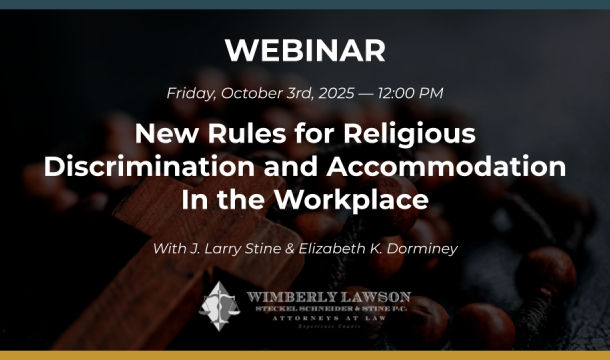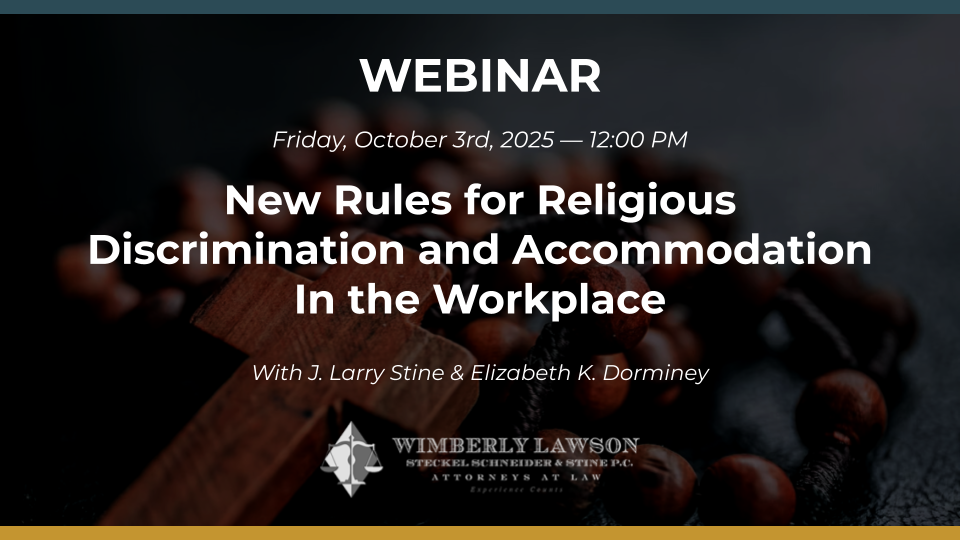NEW YEAR OUTLOOK: RIGHT-TO-WORK DOCTRINE LIKELY TO EXPAND
Right-to-work laws prohibit mandatory union membership as a condition of employment. Currently, 26 states have right-to-work laws, and recent developments indicate that the doctrine of right-to-work is likely to spread.
First, three additional states (Kentucky, Missouri and New Hampshire) have elected both Republican governors and legislators and are likely to pass state right-to-work laws in the near future. Second, an important court ruling (UAW v. Hardin County, Kentucky, 207 LRRM 3561 (C.A. 6, 2016)) has unanimously ruled that right-to-work laws can be passed by county governments, as counties are subdivisions of the "state" for purposes of allowing right-to-work laws. County right-to-work laws, originally started in Kentucky, are likely to spread to other parts of the country, particularly if any unit of local government can pass such legislation. This legislation, for example, has been passed in a town in Illinois near Chicago. Finally, once the President-Elect fills the ninth seat on the U.S. Supreme Court, it is likely that the Court in the future will find governmental support for the collection of union dues to be unconstitutional.
The results of right-to-work laws are significant, the best example being Governor Scott Walker's reform of public union laws in Wisconsin. Since the 2011 reforms allowing right-to-work, the percentage of union membership in Wisconsin has dropped from about 14% to about 8%. Declining union power in Wisconsin has resulted in improvements in public finances and Wisconsin is now viewed as a more attractive state for business resulting in economic gains as well as Republican gains in the state legislature.

Kathleen J. Jennings is a former principal in the Atlanta office of Wimberly, Lawson, Steckel, Schneider, & Stine, P.C. She defends employers in employment matters, such as sexual harassment, discrimination, Wage and Hour, OSHA, restrictive covenants, and other employment litigation and provides training and counseling to employers in employment matters.
Related Content
Get Email Updates
Recent Content

Trump Nominates Appointments to NLRB and EEOC but Policy Changes Likely to Be Delayed

DOL Launches Self-Audit Programs Designed to Help Employers Improve Compliance

DOL Must Release EEO-1 Reports to the Public under Open Records Laws

Current Advice on Active-Shooter Situations

New Policy for Federal Workers and Religious Expressions

